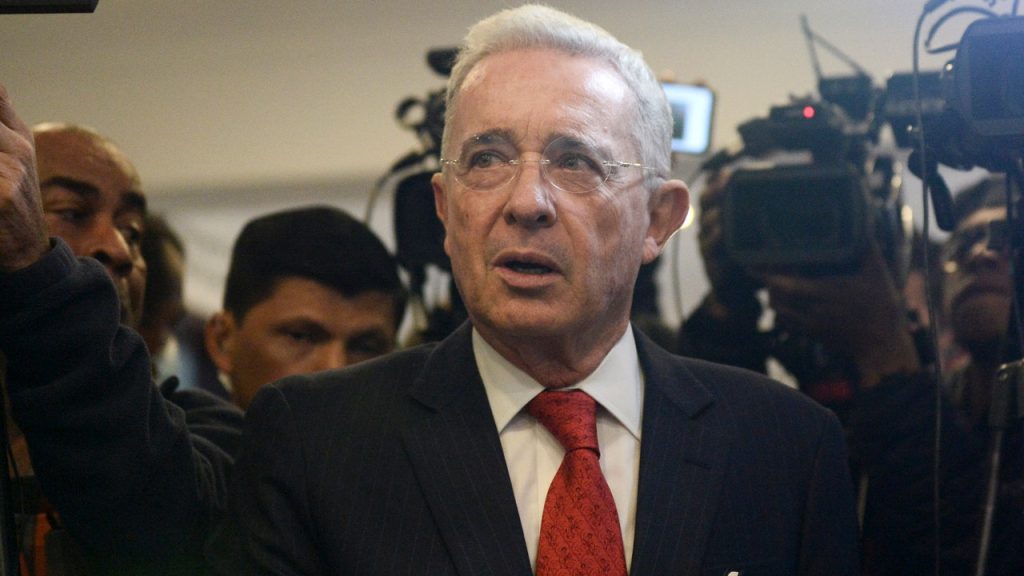Former Colombian President Álvaro Uribe was officially charged with witness tampering and bribery in connection to efforts to discredit a political opponent who was investigating his family’s ties to right-wing paramilitary groups. This case stems from a 2012 complaint filed by Uribe against leftist lawmaker Iván Cepeda, which ultimately led to the Supreme Court opening an investigation into Uribe for manipulating testimony and fraud in 2018. If convicted, the former president faces up to 12 years in prison, but he has denied any wrongdoing and accused Colombia’s chief prosecutor’s office of political vengeance.
Wiretapped phone conversations have emerged in which Uribe can be heard discussing with one of his lawyers efforts to influence two former paramilitary fighters who were set to testify against him. Uribe claims his conversations were illegally intercepted and has maintained his innocence. This legal battle is unfolding in a politically charged environment in Colombia, where President Gustavo Petro, known for his criticism of Uribe, took office in 2022. Uribe, a powerful and influential figure in Colombian politics, has a large following and has been a key player in the country’s history, including leading the successful “no” campaign against a peace accord with leftist rebels in 2016.
Accusations of ties to drug cartels and paramilitaries have followed Uribe since the 1980s, when he was linked to giving air licenses to drug traffickers. Declassified State Department cables from the 1990s also suggested he had cartel connections. The media frenzy and heightened emotions surrounding this case have added complexity to Colombia’s justice system, which has historically struggled to hold powerful political and military figures accountable. Before Petro assumed office and appointed a new attorney general, prosecutors attempted twice to close the witness tampering case against Uribe, citing a lack of evidence. However, those requests were denied by judges, and the case was eventually brought to trial after a change in leadership.
Friday’s hearing in which Uribe was charged was held via video conference, with his lawyer predominantly speaking on his behalf. The chief prosecutor, Gilberto Ivan Villareal, accused the former president of abusing his societal status to manipulate witnesses against his political opponent. Uribe was briefly placed under pre-trial house arrest in 2020 but was released after resigning his senate seat, prompting the case to be transferred from the Supreme Court to prosecutors. Despite the legal challenges and public scrutiny, Uribe continues to maintain his innocence and defend himself against the charges of witness tampering and bribery.
The ongoing legal battle involving Álvaro Uribe underscores the complexities and challenges within Colombia’s justice system and political landscape. The high-profile nature of the case, along with Uribe’s significant influence and following, has heightened tensions and scrutiny. As the country grapples with the fallout from this long-running investigation, the outcome of the trial against the former president could have significant implications for Colombia’s future political direction and efforts to hold powerful figures accountable for alleged wrongdoing. This case serves as a reminder of the fragility of democracy and the importance of a robust and independent judiciary in upholding the rule of law and ensuring accountability in governance.



